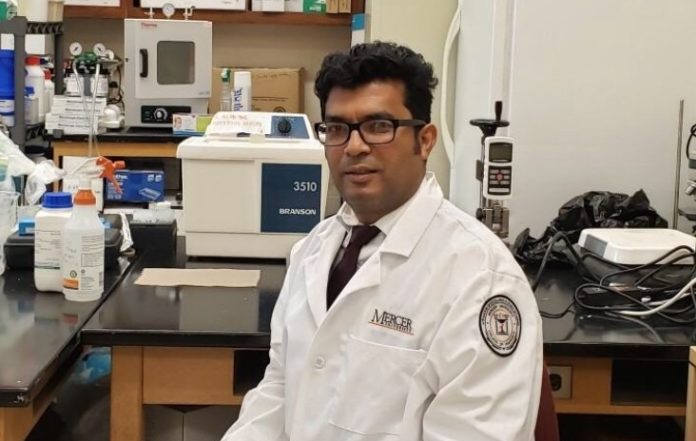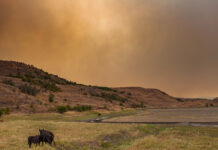A Mercer University professor has been studying strategies to make vaccines for COVID-19 and other diseases more stable for storage and transportation purposes and, therefore, more accessible on a global level.
Vaccine formulation development is the research focus of Dr. Mohammad Uddin, assistant professor of pharmaceutical sciences in the College of Pharmacy. He earned a Ph.D. at Mercer in 2011 and was on the faculty at Lake Erie College of Osteopathic Medicine, Wingate University and Larkin University before returning to Mercer in fall 2020.
Dr. Uddin previously did research related to the stability and efficacy of HPV and gonorrhea vaccines, and he began similar work on the COVID-19 vaccines upon joining the faculty at Mercer. A study, titled “Challenges of Storage and Stability of mRNA-Based COVID-19 Vaccines,” that he co-authored with Dr. Monzurul Roni, clinical assistant professor of health sciences education and pathology at the University of Illinois College of Medicine at Peoria, was published in the September edition of the journal Vaccines.

Amid the height of the COVID-19 pandemic, a novel type of vaccine emerged that proved highly effective and allowed for expedited production. Messenger RNA (or mRNA) vaccines teach “cells how to make a protein that will trigger an immune response inside our bodies,” according to the CDC.
The Moderna and Pfizer vaccines are 96% effective against COVID-19 and can be easily adapted to fight different variants; however, very specific storage and transportation criteria must be followed to ensure the stability and viability of these vaccines, Dr. Uddin said.
“Ultra cold” storage is required to keep the Pfizer vaccine frozen at minus 112 degrees Fahrenheit, and Moderna’s vaccine must be stored at minus 4 degrees Fahrenheit. Both last six months when frozen and one month when thawed and refrigerated. The problem is that many countries don’t have the capabilities to maintain these temperatures during storage and transportation.
“Globally, about 50 percent of the vaccine is wasted for storage problems. Sometimes the temperature gets high, and they are all destroyed,” Dr. Uddin said. “This is a really good vaccine that can be used quickly and cover different variants of COVID-19. But due to this stability problem, it cannot be global yet.”
The purpose of Dr. Uddin and Dr. Roni’s research was to address these limitations in order to improve COVID-19 vaccines as well as other mRNA vaccines in development. Dr. Uddin was assisted in his research by Mercer Ph.D. student Sarthak Shah and master’s/Pharm.D. student Hayley Harrold.
Some potential strategies to improve stability include mRNA chemical modification; freeze-drying the vaccine to eliminate the liquid phase that makes the vaccine weak; and using another harmless virus (or vector) to carry the mRNA molecules through the body.
“The virus is like a vehicle,” Dr. Uddin said of the vector method. “We get the mRNA in the virus, and we take that to the body to protect. It can be another virus or it can be nonviral.”
The fourth method, which Dr. Uddin is focusing on now, is to make a lipid nanoparticle — an organic compound that delivers drugs — that will cover and protect the mRNA, increasing its lifetime.
If the stability of the mRNA vaccines can be increased, an oral vaccine dose by tablet or liquid could be a possibility in the future. This would help decrease vaccine hesitancy and storage costs, in addition to making the process more convenient for the patient, he said.
“A lot of people don’t take the vaccine because of fear of the needle. If you take it like a tablet, that will be a lot easier,” Dr. Uddin said. “The change of formulation can change the psychology and increase the acceptance. This is very important for global health.”








